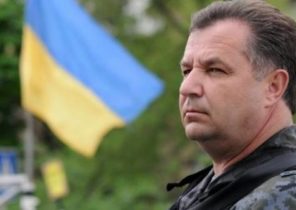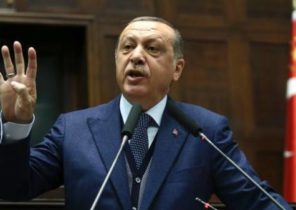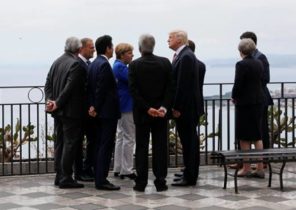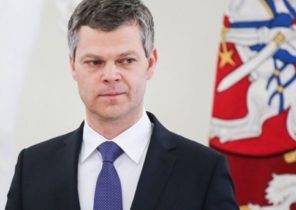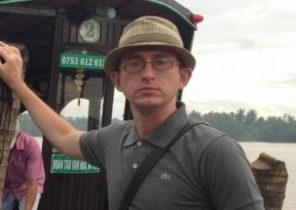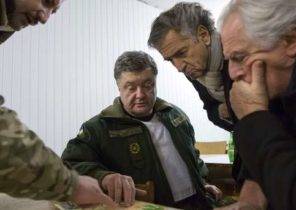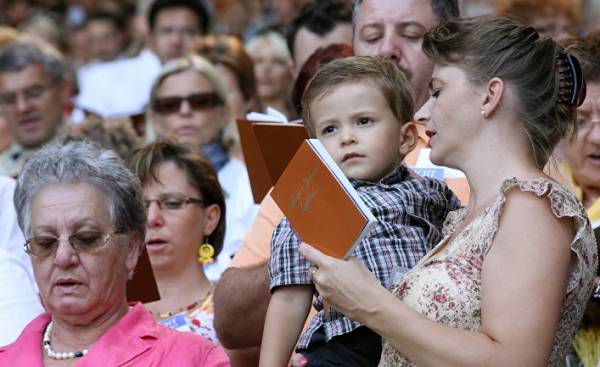
The hearing ended. The judge made. But none of those gathered in the hall to go home not wanted.
They stood huddled together in little groups on the sidewalk in front of the courthouse in the provincial Russian city of Orel. One by one they came to hug Irina Christensen.
Her eyes were red from crying.
It was her husband, Dennis Christensen — sitting in these weeks in the dock, and the case is very unusual even for a Russian.
44-year-old citizen of Denmark, was first imprisoned on charges of extremism associated with the Christian group Jehovah’s Witnesses (organization is recognized in Russia as extremist and banned — approx.ed.)
A Dane living in eagle for more than ten years, may 25, was arrested during police action against a small city religious community.
After that, the Russian government only tightened their actions. Last week, the ban against Jehovah’s Witnesses in Russia was confirmed by the Supreme court. This means that the Russian government can confiscate all property belonging to the religious community.
Last Thursday, a judge extended the pretrial detention of Dennis Christensen for four months. This means that it can keep you in custody until November 23. After his arrest, Dennis Christensen was not possible either to see his wife or speak with her.
“I’m not allowed to visit him. We can’t talk on the phone. And now they say it’s another four months. Don’t know how I’ll survive,” Irina says Christensen in an interview with Berlingske.
According to the prosecution, Dennis Christensen — a dangerous man, and for his activities in “extremist organizations,” he should remain behind bars.
This label Jehovah’s Witnesses received in accordance with the court decision handed down in April. Thus, Russia has identified a group known for its persistent calls to door, distributing Bibles and denying a blood transfusion in the same category as ISIS, al-Qaeda (a terrorist organization banned in Russia — approx.ed.) and armed groups of militants in the North Caucasus.
Against this background, Dennis Christensen risking up to 10 years in prison if convicted.
Representatives of the Embassy of Denmark in Moscow visited the arrested Dennis Christensen. And after the last extension of pre-trial detention period the oldest human rights organization in Russia “memorial” added Dane to their list of political prisoners in the country.
“Christensen is the first in the modern history of Russia, deprived of liberty because of their religious affiliation,” writes “memorial”.
He argued with the police
The arrest of Dennis Christensen today is the culmination of the storm that has rolled in a number of religious minorities in Russia.
Russian President Vladimir Putin, who willingly participates in the religious celebrations in the Russian Orthodox Church in the country, last year signed a series of laws that led some Protestant groups to hammer alarm.
The new decree, for example, making it illegal to hold religious services in private homes and prohibits many small communities to engage in missionary activities, which they are doing now.
“These decrees set the stage for the mass persecutions of the believers,” warned four Protestant Church leaders in Russia in a letter to the President last year.
A number of foreign Christian missionaries — in particular, the Mormons were expelled from Russia after the adoption of this package of laws.
While such confessions, which in the Russian legislation have the status of “traditional” Christianity, Islam, Judaism, and Buddhism — yet are not restricted.
But for about 170 thousand Jehovah’s Witnesses in Russia has fallen on hard times. In recent years, Russian courts have branded as extremist a publication of the group, which means they fall under strict Russian legislation on the fight against terrorism. Last year, the local court of the city of eagle used this solution for dissolution of the local religious community, citing her “extremist activities”.
The latter was the justification for the police action that led to the arrest of the Dane.
Local media in the eagle has published a video in which police and security agents of the KGB (SIC — approx.ed.) wearing masks climbed over the fence of a private home where more than 50 “Jehovah’s Witnesses” in one of the may Thursday gathered to read the Bible.
The record shows, as Dennis Christensen and some others trying to argue with police officers in masks.
“You have no right,” he says in Russian in the video, while community members are in shock looking at what is happening from their chairs.
Police detained several of those present, but only Dennis Christensen yet charged and only he is still in custody.
Russian Church supports ban
Dennis Christensen was born in Copenhagen. According to his family, he lives in eagle for over 10 years and 15 years married to a Russian woman. In the eagle he has an apartment and a private company.
Local Jehovah’s Witnesses say that — in contrast to what authorities say is he is not playing a leadership role in the movement.
However, the fact that a foreign national was targeted in such important matter, for several reasons, says Geraldine Fagan (Geraldine Fagan), an expert on religious Affairs in Russia and the author of the book “Faith in Russia” (“Believing in Russia”).
“Maybe it was an attempt to show people what Jehovah’s Witnesses — “alien” faith. Although they existed for over a hundred years in Russia, now have very few ties with foreign countries”, — she said in an interview with Berlingske.
The conflict, in particular, stems from the rivalry of different religious communities in Russia, she said. Prevailing in the country, the Russian Orthodox Church, which enjoys close relations with those in power in the Kremlin, says Christian sects and other religious minorities by competitors. The leadership of the Russian Orthodox Church called Jehovah’s Witnesses a “totalitarian and harmful sect” and supported the ban.
However, Jehovah’s Witnesses are easy targets, since the motion in principle does not interfere in politics and therefore has no allies either in Russia or abroad, emphasizes Geraldine Fagan.
“However, the Kremlin is now much less concerned about how to attack the Protestants than at the beginning of Putin’s stay in power,” she says.
According to her, groups such as Baptists, Adventists and Pentecostals, could easily be in the same situation as the Jehovah’s Witnesses. Eminent hierarchs of the Russian Orthodox Church put pressure with this purpose.
Alexander Dvorkin, a former Orthodox priest, is a public adviser to the Russian Ministry of justice and an activist against what he calls “totalitarian religious sects.”
“Almost no day goes by without complaints of Jehovah’s Witnesses. They have become a national allergen,” says Alexander Dvorkin in an interview with Berlingske.
It indicates a possible fatal outcomes due to transfusion of blood and “espionage” members of the sect for their co-religionists as examples of extremism.
“This is extremism. Outdoor is extremism such as terrorism and extremism are hidden when groups are recruiting new members for a fraud,” he said.
The ghosts of past persecution
But even within the Russian Church in the corners is heard murmuring. And Orthodox priests, and Jehovah’s Witnesses from the Soviet period under Joseph Stalin were the victims of harassment, deportations and mass executions. When the security falls on people reading the Bible, many believers in Russia, there is frost on the skin. However, the floor of the wording of the law on the fight against extremism with the same success can be used against the Orthodox Church, says Roman Lunkin, editor of the magazine “Religion and law”.
“The law on the control of missionary activity and fines for distributing religious literature can affect not only Protestants and Catholics but also the Orthodox,” he writes in a research article.
During the court session on Thursday, Dennis Christensen and his attorney tried to convince the judge that it should be released on bail or placed under house arrest until the case is heard.
“I never did anything criminal,” said Dennis Christensen, referring to the crowded hall.
Several times he quoted the Bible. As is customary in Russia, he said from a locked jail cell in the courtroom, guarded by his two guards. But the judge decided that Dennis Christensen will be able to “continue his criminal activity”, if at the time of the case it was released.
After the court hearing Irina Christensen reported that she was concerned about the condition of her husband in prison. “But Dennis — the man is very principled. He’ll never give up,” she says.
Many Jehovah’s Witnesses in eagle in recent days has been caused on interrogation in FSB, and their homes were searched, said the lawyer, Dennis Christensen Anton Bogdanov.
“I do not know if we should gather to pray, not arrest us police. Everyone knows that can be in the same situation as my husband,” says Irene Christensen.
Simon Cruz — correspondent for Berlingske in Russia.
